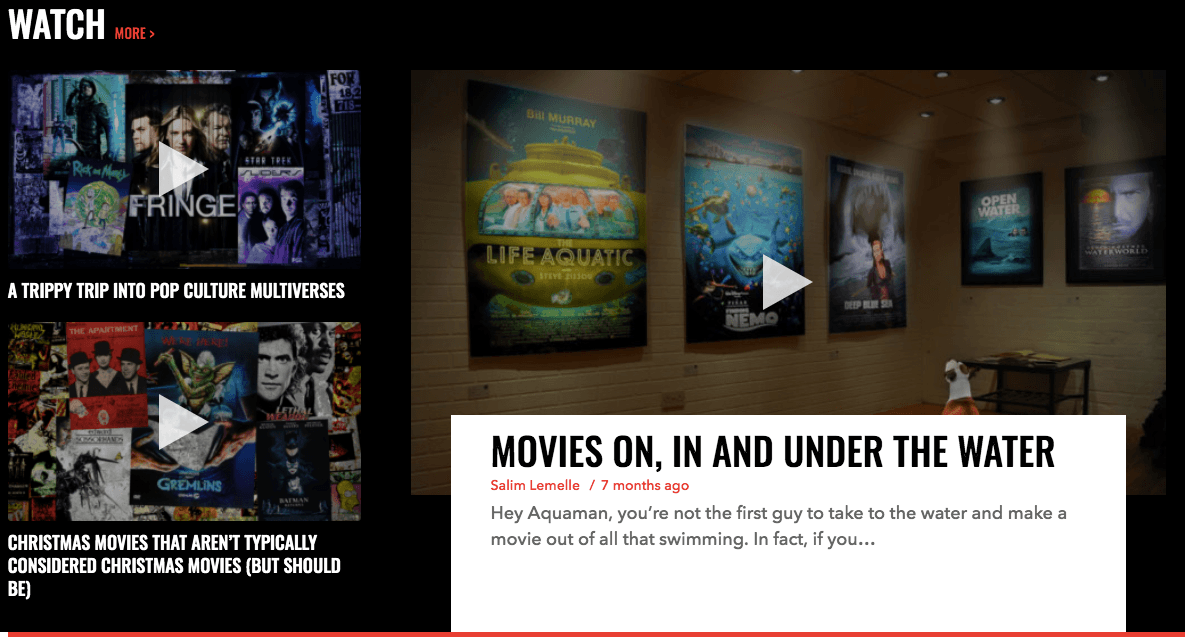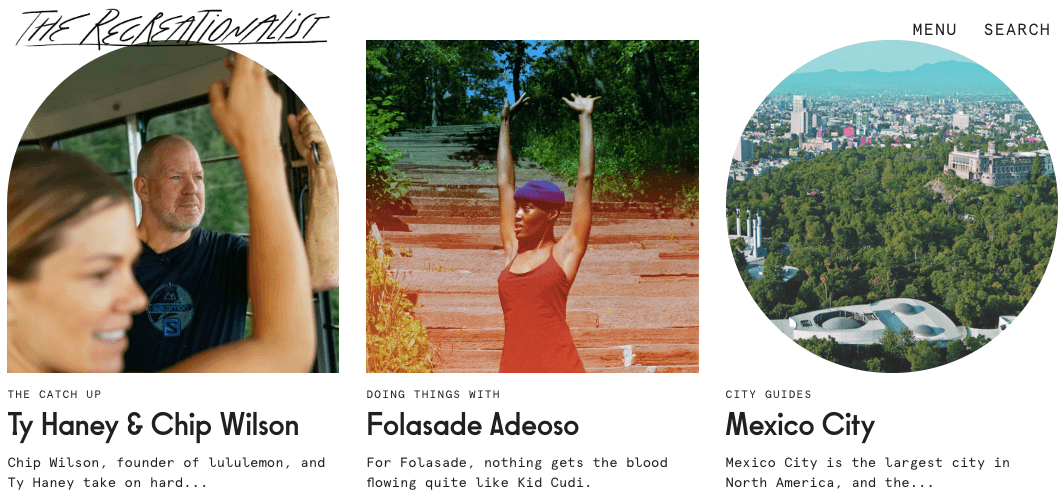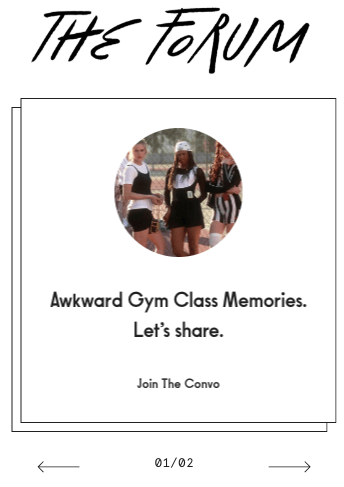How DTC Brands Build Trust with Meaningful Content Experiences
As direct-to-consumer (DTC) brands continue to rise, with them comes a reimagined branding tool: content. In the age of CaaS, or Content as a Service, it’s the experiential content that brands serve that can set them apart and move the needle.
Today more than ever, consumers want to trust the brands they choose. According to a recent Edelman study, a majority of consumers reported that they would prefer to purchase from a familiar, trusted brand. In fact, 66 percent of people surveyed would rather stick with their brand of choice than a competitor that’s more innovative or technologically advanced, and 75 percent said they value trust more than trendiness.
Brands that can win consumer trust lead the pack in consumer loyalty and advocacy. While DTC brands tend to have an upper hand in fostering trustworthy relationships thanks to their focus on transparency, they still haven’t fully cracked the consumer trust code. But, in true ever-innovating form, a slew of DTC brands are trying a new strategy to bridge the consumer trust gap: experiential content.
What’s the difference between traditional content and experiential content? Typically, content like a blog post or case study on a brand’s site is inherently branded. This type of content is usually pushing, subtly or not, the narrative of the brand, products or services. It seeks to exemplify brand value.
Experiential content, on the other hand, is a fully-formed content experience that is housed separately from the brand’s other content. It may take the form of a publication, a microsite, a print asset or even a podcast. This is content that requires higher levels of production and creative insight. Content experiences like these are not solely focused on proving the value of the brand or its products. Instead, this content is focused on educating and entertaining consumers. Rather than seeking to be an influence, this content seeks to be a partner. It seeks to build trust.
Just as social proof on a website provides an authentic customer recommendation of a brand’s product or service, experiential content aims to prove why a consumer should be able to trust a brand. A brand’s well-crafted content experience shows, rather than tells, why their recommendation carries credence.
Dollar Shave Club’s MEL Magazine wants to contribute to members’ wellbeing — mental and physical
In 2015, Dollar Shave Club, a DTC brand that delivers personalized grooming products to members’ doors, launched MEL Magazine, an online lifestyle and culture magazine that offers life advice “from a male point-of-view — even though we’re not all male, and aren’t entirely sure what ‘male’ should mean anymore.” MEL is entirely original editorial content that adds to Dollar Shave Club’s brand without being outwardly branded. Customers, or members, are mailed physical copies of MEL content as a part of their subscription — a built-in readership in addition to the organic traffic that visits the digital magazine.
Michael Dubin, CEO of Dollar Shave Club, sees MEL as a way to “develop a deeper connection with its customer base.” For him, “Dollar Shave Club’s mission is to help guys take care of their minds and bodies so they can be their best selves.” Dubin makes it clear that Dollar Shave Club’s content and MEL’s content are completely separate from each other, even though they ultimately both serve one mission. According to Dubin, “those two entities are different vehicles driving that mission.”
A section of content on MEL Magazine.
The charge to make not only monetary contributions to Dollar Shave Club, but philosophical contributions to the wellbeing of men speaks to two essential content marketing trends that aim to build trust: purpose-driven marketing and value-driven content experiences.
Through a full-fledged content experience like MEL, Dollar Shave Club proves itself as a brand that cares not only about the revenue it drives from its subscriptions, but the physical and mental well-being that the brand provides for its members. This stride to be a source of personal value to consumers is a healthy step in the direction toward sustained customer loyalty. According to a recent study, nearly 63 percent of global consumers prefer to purchase products and services from companies that reflect their own values and beliefs — and they’ll avoid companies that don’t.
MEL Magazine provides readers with the experience of being seen on the inside, while Dollar Shave Club provides members with the confidence to be seen on the outside. The unapologetic, open-minded tone aims to be both a reflection of and inspiration to its customer base, appealing to the authenticity that consumers seek when choosing brands they trust. Ninety percent of consumers say authenticity is important when deciding which brands they like and support, and content experiences like MEL Magazine take that to heart.
Outdoor Voices launches The Recreationalist to inspire you to go “do things”
DTC activewear brand, Outdoor Voices, recently launched The Recreationalist, a content hub that provides customers with inspiration to get up and abide by the brand’s motto: doing things. The Recreationalist provides city guides, playlists, stories and, for the launch, a limited-run zine.
According to Chris Ralston, Director of Digital Brand Experience at Outdoor Voices, the team is “trying to become a resource as a whole.” This shift from brand to resource denotes the shift from content as nice-to-have to content as a necessary brand component. “We recognize that ‘doing things’ means a lot of different things depending on the individual,” said Ralston. “This unlocks a way for us to shed light on the various ways people are staying active on a daily basis.”
Because The Recreationalist as a content hub is completely separate from Outdoor Voices’ branded content, it fosters consumer trust that comes with a sense of community. “This is an opportunity for us to establish that two-way conversation,” Ralston said. “Our community to date has been so willing to have an open dialogue with us as a brand. There are always so many interesting things going on that our community is flagging to us, and now we have a place to put them.”
When a brand puts its trust into its community with a consumer-centric content experience, the community reciprocates that trust. And, while The Recreationalist serves to inspire, educate and entertain its audiences, Outdoor Voices also gets to learn more about its community from the content that’s created there — and the brand can then shape its product roadmap accordingly.
DTC brands rely on frequent, vibrant and creative self-expression because their customer base is built on media, like Instagram and Twitter, that encourages user-generated content. With experiential, community-based content like The Recreationalist, Outdoor Voices not only fosters consumer trust — it fosters loyal brand advocates that become an integral part of the brand as a whole.
Content experiences show, rather than tell, that a brand is trustworthy
Experiential content hubs like these are a brand response to heightened customer demand for experiences. Customers don’t just want a brand that looks good — they want a brand that is good, and can prove it.
Content that isn’t packaged up in a consumable experience won’t stand the test of time for the digital consumers of today. And Dollar Shave Club and Outdoor Voices aren’t the only brands catching on. Brands like H&M’s Itsapark, Casper and Snapchat have leveraged content experiences and communities that bring customers closer to the brand.
When brands leverage an experiential content strategy, they humanize their customers. Instead of viewing audiences in bulk, brands can view their customers as people — and personalize their products and services to meet real customer needs and solve real pain points. Content experiences speak to consumers’ demand for authenticity. Is your brand’s content serving a customer experience that sticks?
Header image source: The Recreationalist.







